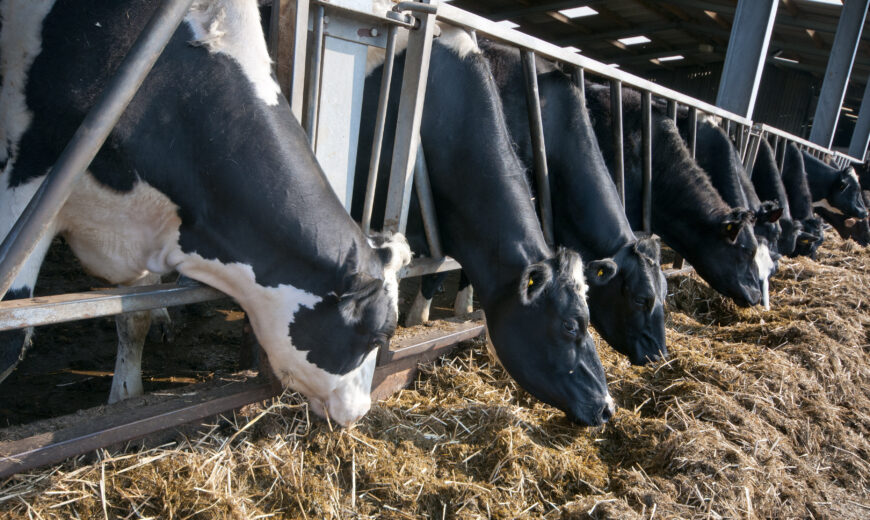
Farmers are being reminded of the risk of botulism this season after soaring fertiliser prices led to an increase in the use of poultry litter on grass crops.
Ruminant Health and Welfare (RH&W) chairman Nigel Miller is urging farmers who made use of poultry litter to closely monitor their feed and work with their vets to reduce the risk of botulism to their livestock.
The warning comes after reports emerged of animals being affected by botulism already this season.
“Managing grass growth has been an ongoing challenge for many farmers throughout this year, with already high fertiliser costs and the droughts across much of the UK resulting in farmers revaluating their fertiliser strategy for the late season and the new year,” says Mr Miller.
“With nitrogen levels higher than traditional farm yard manures and slurry, litter from the poultry and gamebird sectors can look an attractive option to help counter high input costs. There are however risks to both grazing animals and silage production linked to these products.”
He says it is generally recommended that poultry litters be incorporated into the soil before crop establishment to protect livestock, however this is clearly challenging on grassland units.
“Deep litter in poultry sheds may be contaminated by bird carcases or fragments of dead birds,” explains Mr Miller.
“That material has the potential to carry botulinum toxin – a toxin which impacts on muscle function and can cause mortality in animals that graze contaminated grass or silage.”
He reminded farmers that in cases where silage becomes contaminated with the botulinum toxin, feeding it out through mixer wagons can expose larger numbers of animals to the toxin increasing its impact on the herd.
“On many farms both climatic and economic pressures are at an unprecedented level and with forage stocks limited developing feed strategies will be crucial to carrying production and stock through the winter period,” adds Mr Miller.
“In that difficult climate it’s worth factoring in the risk of botulism on your own holding and on neighbouring fields and if a risk is identified work with your vet to avoid problems.”
At present, no vaccine is available in the UK under general licence for protection against botulism. However, the Veterinary Medicines Directorate (VMD) has authorised two cattle Cl Botulinum vaccines in the UK.
Theses vaccines are available under ‘special treatment certification’ through the cascade to veterinary surgeons for the protection of cattle at risk of the toxin, but they should not be used as a substitution for hygiene measures.
“If you suspect botulism has entered your herd or flock, you should contact your veterinary surgeon immediately,” concludes Mr Miller.
“It’s also important to isolate any suspected contaminated livestock from the main group and contain them in alternative housing or grazing as soon as possible.”
For further information on preventing the spread of Botulism in your herd, please visit: Botulism in Livestock | Department of Agriculture, Environment and Rural Affairs (daera-ni.gov.uk)
